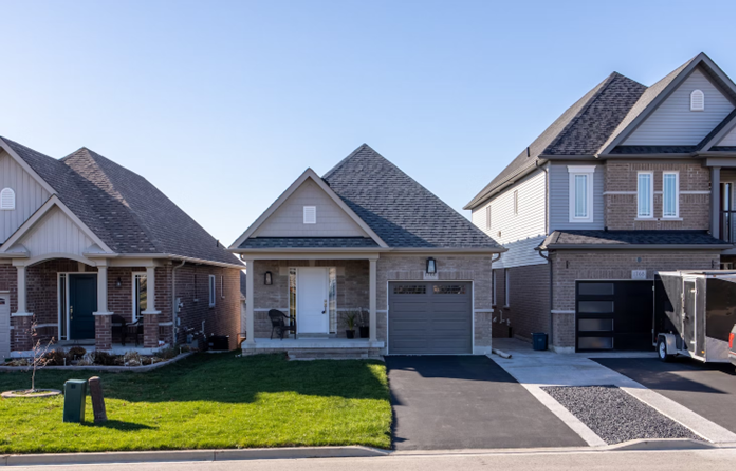Allergy season hits, you wipe every surface inside, and the sneezing still follows you from room to room. The culprit often lives outside. Pollen, mold, and dust cling to siding, roofs, decks, and concrete, then drift indoors through windows, vents, and on your shoes.
If you have been hunting for a power washing company, here is the simple logic: clean the exterior, cut the supply of irritants, and your indoor air gets a break.
At Veterans Pressure Washing, we focus on the places allergens love to hide and the pathways they use to get inside. Our team pairs the right cleaning method with smart timing so your home breathes easier and stays that way longer.
Outdoor allergens, indoor problems
Allergens start outside but they do not stay there. Common routes include:
- Air leaks and open windows. Wind lifts pollen and mildew spores from dirty siding and soffits, then sends them through tiny gaps around frames and screens.
- Foot traffic. Porous concrete and decks trap spores and dust that hitch a ride on shoes and pets.
- HVAC intakes and attic vents. Debris buildup near intakes increases what your system pulls in. Overflowing gutters can add moisture that fuels mold near vents.
The result is a constant trickle of irritants. Cleaning interior surfaces helps, but the supply line needs to be addressed outside to see lasting relief.
What we target on a typical service
Siding and soffits
Biofilm, mildew, and grime collect in shaded areas and under eaves. We remove that layer and pay special attention around attic vents and window trim to lower what drifts indoors on breezy days.
Roof and gutters
Leaves and grit retain moisture, which creates a friendly habitat for algae and mold. Clearing gutters and washing roof surfaces helps dry the area out and reduces what ends up inside through leaks or air movement.
Concrete, brick, and pavers
Driveways, patios, and walkways hold dust and spores. A thorough wash reduces what gets tracked through the door and what blows onto threshold rugs.
Decks, railings, and outdoor furniture
These stay close to open windows and doors. Cleaning them cuts down on the transfer of allergens during cookouts and everyday use.
The right method matters: soft wash and pressure wash
Different surfaces need different approaches. On fragile materials like painted siding or older shingles, we use a soft wash technique that relies on detergents and a gentle rinse.
For tough, porous surfaces like concrete, controlled pressure removes embedded grime. The goal is always the same. Lift the growth, limit the drift, and leave the surface clean without damage.
How our process protects indoor air while we work
- Controlled application. We apply solutions where they belong and avoid saturating gaps around doors or vents.
- Mindful rinsing. We manage water flow to keep residue from blowing back toward open windows or kick plates.
- Homeowner coordination. If possible, we ask you to keep windows closed and set HVAC to recirculate during exterior cleaning.
- Follow-up tips. We share easy steps to keep the gains going once everything has dried.
These small details add up. The cleaner the exterior path, the fewer particles make it inside.
Why hire a pro instead of DIY
A seasoned power washing company brings the right nozzles, detergents, and water volume for each surface. That matters for two reasons. First, it prevents damage to paint, mortar, and shingles.
Second, it ensures the cleaning actually removes the biofilm layer that traps allergens rather than just moving dirt around. We also work efficiently at height so you are not spending weekends on ladders breathing in what you are trying to remove.
Timing that helps allergy sufferers
- Late winter to early spring. A full wash before trees let loose reduces the base layer that catches pollen.
- After heavy storms. Wind and rain can glue pollen and dust to every surface. A quick follow-up wash keeps buildup from hardening.
- Late fall. Clearing leaves and washing gutters helps prevent damp pockets that feed mold through the colder months.
Quick wins to keep the results longer
Pair professional washing with these simple moves:
- Add a stiff-bristle mat outside and a washable mat inside each door.
- Set a shoe station so outdoor grit stays near the entry.
- Rinse window screens gently a few times each season.
- Change HVAC filters on schedule and vacuum return grilles.
- Give outdoor furniture a light rinse every couple of weeks during high pollen periods.
What to expect from our team
We start with a walk-around to understand your priorities and any trouble spots. Then we choose the right mix of soft wash and pressure cleaning for each surface. You will get straightforward communication, careful protection around landscaping, and a clean that feels different once you step back inside.
Many customers tell us the house smells fresher and dust settles less on hard surfaces after an exterior wash because the constant stream of outdoor irritants has been interrupted.
A cleaner exterior really does mean easier breathing
No single step solves allergy season, but reducing the outdoor buildup that feeds indoor air problems makes a noticeable difference. Wash the surfaces that shed particles toward your doors, windows, and vents, and the air inside feels calmer.
Breathe easier. Start outside.
If you are ready to cut down allergens at the source, schedule a service with a local team that treats your home with care. For pressure washing in Augusta, we are here to help you reduce pollen, mold, and dust where they start so your family can breathe easier.
Tell us what you are noticing inside, and we will build a targeted exterior cleaning plan that supports cleaner air throughout your home.





